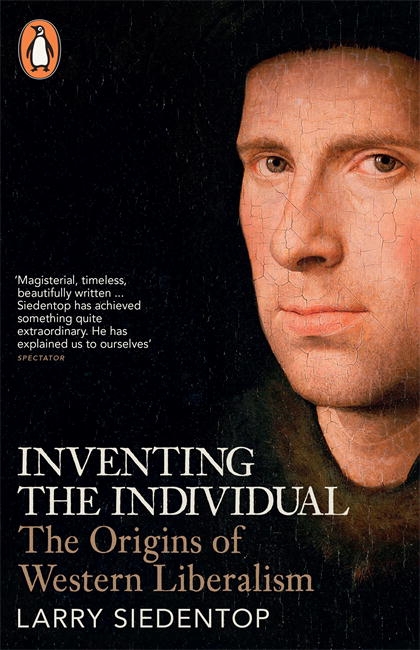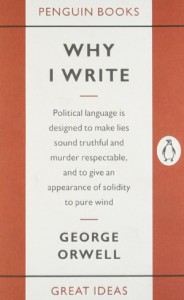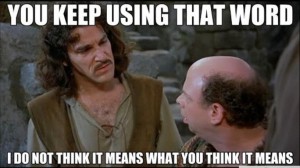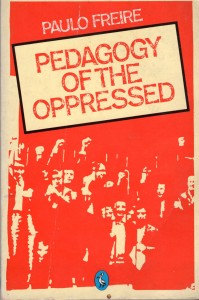Review: ‘I Find That Offensive’
 Here’s an example of constructive polemic that goes where angels fear to tread. Left-wing libertarian, Claire Fox, critiques “Generation Snowflake” – the millenial generation, now in their young adulthood, who are readily caricatured by their insistence on things like safe-spaces and trigger-warnings, who have a propensity to take offence and call for silencing, de-platforming, and any number of other sanctions against those with whom they disagree. Throughout this book, aptly named ‘I Find That Offensive’, Fox recounts various occurrences of such intolerance-in-the-name-of-tolerance that have embroiled and disparaged even champions of progressivism such as Germaine Greer.
Here’s an example of constructive polemic that goes where angels fear to tread. Left-wing libertarian, Claire Fox, critiques “Generation Snowflake” – the millenial generation, now in their young adulthood, who are readily caricatured by their insistence on things like safe-spaces and trigger-warnings, who have a propensity to take offence and call for silencing, de-platforming, and any number of other sanctions against those with whom they disagree. Throughout this book, aptly named ‘I Find That Offensive’, Fox recounts various occurrences of such intolerance-in-the-name-of-tolerance that have embroiled and disparaged even champions of progressivism such as Germaine Greer.
Fox’s perilous journey through these issues walks a fine line. Despite her leftward and presumably progressive leanings, she sometimes feels only half a step away from derisive Trumpism. For the sake of fairness, then, it’s worth noting that she also has a message for the “anti-Snowflakes”, exhorting them to respond without just being “the un-PC rebel lashing out” or turning things into a “joking matter” (page 165). And despite her pessimism, she does provide some thoughts on possible responses that are positive and at least somewhat remedial even if fundamentally lacking.
The value of Fox’s book is her main point of enquiry. This comes after her first part where she describes the phenomenon at hand, recounting episode after episode in which free speech has been curtailed by official sanction, the fear of the politically correct landmine (page 9), the arrogant epistemology in which the offended person alone can “determine what your words really mean” (page 9), and the perplexing apparatus of “unconscious microaggressions” (page 20). She then begins to examine generational psychology, particularly of victimhood as the currency of rhetorical authority (page 24), that can be appropriated by overzealous empathy (page 30) or claims of self-identity (page 37), and which frames mere disagreement as abusive violence. It’s at this point she asks the key question: Why?
Why does this Generation exist like this? What has brought about these symptoms? From what root do these deeply-held assumptions about society, community, and humanity come from? From my own perspective as a cultural observer, these are the gems to reveal. And Fox is clear:
…why do the young – historically associated with risk-taking, experimentation, rule-breaking and pushing boundaries – now see safety as a trump-all virtue, so much so that concerns about safety are regularly deployed to censor, ban and retreat from argument?… why do so many teenagers and young adults , who as a generation have always been those who aspired to freedom from adult supervision and who regularly rebelled against authority diktat, now demand to live in a hermetically sealed, risk-free cocoon, protected from harm by authority figures who they complain do not police their ‘homes’ stringently enough?
The short answer is: we socialised them that way. They have been reared on stories about how vulnerable and in need of protection they are. Adult society has fed them a diet of anxieties and provided the language of safety and risk aversion that now threatens liberal values of tolerance and resilience. We are reaping what we have sown – and the young Snowflake Generation, so quick to shout offence, are merely ventriloquising our own fears imposed on them as children. (Pages 66-67)
We are to blame! That’s worth unpacking.
At this point Fox appears to step across the line into simplistic tirade. She blames our focus on “health and safety madness” (page 67), public health scares (page 78), child protection systems (page 83), and the “anti-bullying bandwagon” (page 91). Her points are mostly well-made – particularly with regard to helicopter parenting and the consequent diminishment of a generation’s resilience. And her critiques of more sacred cows, such as anti-bullying and safeguarding are not without their validity. Nevertheless, her analysis comes across as dismissal with only a cursory glance at the necessary place of some of these cultural developments. Speaking from experience of necessary safeguarding in the church, there’s an obligation for commentators to be an apologist as well as a critic of measures that are proper defenses against the harming of children.
Her analysis retains its value though. She begins with the symptoms, attempting to reveal the layers on which they rest. She uncovers two hallmarks of Western Society that I have discovered in my own area of a Christian engagement with contemporary society. These hallmarks are fear and consumerism.
For Fox the fear derives from parental anxiety and the “catastrophising of life’s challenges” (page 70). A generation has interiorised an attitude in which “children are portrayed as vulnerable and helpless victims, rather than in any way resilient or competent – or indeed happy” (Page 74, quoting David Buckingham). This is certainly apparent in church culture, in which parents’ fears about the world or their own perceived incompetence motivates both an outsourcing of their children’s spiritual care, and an infatuation with that which is passive and safe. A very recent article in the Telegraph, “Parents fear that their religion will make their children outcasts” illustrates exactly this.
The consumerism factor leads to a sense of entitlement. The culture of protectionism and super-vigilance by authority figures has led to a passivity.
However, a lack of awareness of this passivity can mean that young people themselves are flattered at such third-party interest. They seem to enjoy being mollycoddled, gaining an artificial sense of empowerment from their various victim roles as well as feeling legitimised as objects of institutional concern and interventions. Hence we have two seemingly contradictory phenomena: generational fragility combined with narcissistic self-belief in one’s own importance. (Page 116)
This also is prevalent in church culture, which has been forced like other institutions into a “service-consumer” dynamic (page 123). Ministry is expected to merely entertain and stimulate, and key aspects of discipleship – self-examination, self-sacrifice, the cost of moral living, etc. – are anathema.
I end up sympathising, then, with Fox’s final exhortation to this current younger generation to not given into the “condescension” of mouthing “the identity-laden values that PC Baby Boomers and academic cultural relativists have been pushing at you for years” (page 150) and so “toughen up” (age 162) and grasp a more “vibrant sense of autonomy” (page 175) that can transcend the prevailing zeitgeist. And her appeal to embrace a “new model of personhood, a new philosophy of freedom” (page 173) that seeks an “aspirational future” that “replaces safety as the end goal” (page 174) is almost on the money.
What I think is missing is something that can be encapsulated by the Christian sense of hope. Such hope is realistic about the threats of the world, yet a source of great assurance. It encapsulates an objective sense of value that places opposition outside of oneself (and therefore able to be not taken personally). It also provides a sense of purpose that places other-centred doing of gospel good, rather than self-centred safety, as an aspiration and a goal.
Such hope is abstract, but relevant, applicable to all generations, and not least this current one that is rising up.


 George Orwell is a touchstone of 20th Century literature, particularly political rhetoric. There are numerous commentators who have delved into the depths of classics such as Animal Farm. But when I finally got to reading (for the first time!) the definitive 1984 I thought I would go to Orwell himself to reveal his whys and wherefores.
George Orwell is a touchstone of 20th Century literature, particularly political rhetoric. There are numerous commentators who have delved into the depths of classics such as Animal Farm. But when I finally got to reading (for the first time!) the definitive 1984 I thought I would go to Orwell himself to reveal his whys and wherefores. The conclusion
The conclusion




